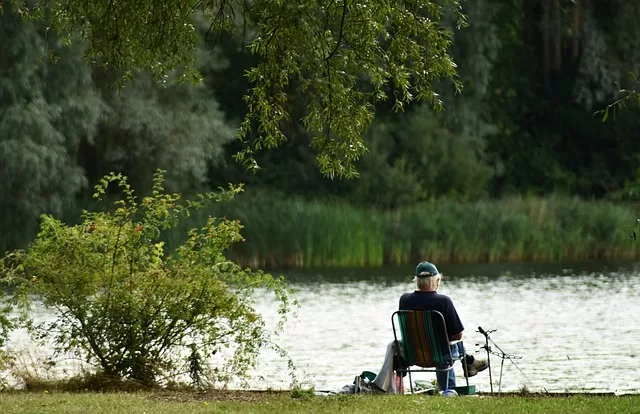Protecting The Elderly From Trade Scams: Essential Tips & Precautions.
The escalating threat of Trade Scams targeting elderly individuals has become a huge concern in recent years.
Unscrupulous companies are exploiting vulnerable seniors, often charging exorbitant fees for simple tasks or basic services.
With this article I’ll be doing my utmost best to provide comprehensive guidance on protecting our elderly loved ones from falling victim to these deceptive and potentially criminal practices.
Table Of Contents
1.0 Understanding the Growing Threat of Trade Scams.
2.0 Identifying the Signs of a Dodgy Trades Company.
3.0 Researching Reputable Tradespeople.
4.0 Training Your Elderly Family Member: Practical Safety Tips.
5.0 Creating an Emergency Plan for Household Issues.
6.0 Additional Considerations for Comprehensive Elderly Protection.
7.0 Conclusion: Protecting the Elderly from Trade Scams.
1.0 Understanding the Growing Threat of Trade Scams.
Trade scams targeting the elderly is one of the lowest acts but sadly, these despicable acts have seen a significant increase, particularly in after-hours services for electrical, plumbing, and locksmith work.
These fraudulent and immoral companies often appear at the top of internet search results (they pay a lot of money for that privilege), making them seem legitimate to unsuspecting seniors.
1.1 Common tactics used by trade scammers:
1. Operating under multiple business names.
2. Creating fake positive reviews.
3. Overcharging for basic services.
4. Demanding large upfront payments.
5. Failing to complete jobs after receiving payment.
The impact of these scams extends beyond financial losses. Many elderly victims experience emotional distress and a diminished sense of security in their own homes.
The financial impact can be devastating but so is the emotional impact when they’ve been scammed out of thousands of dollars which has ended up being put on their credit card and they will now struggle to be able to pay it off.
1.2 Key areas of concern:
· After-hours electrical work.
· Emergency plumbing services.
· Locksmith services for seniors accidentally locked out of their homes.
To combat this growing threat, it’s crucial for family members, friends, neighbours and caregivers to be vigilant and take proactive steps to protect their elderly loved ones from falling prey to these unethical practices.
2.0 Identifying the Signs of a Dodgy Trades Company.
Recognizing potential red flags associated with fraudulent tradespeople is crucial in protecting the elderly from scams.
Being aware of these warning signs can help seniors and their families avoid falling victim to unscrupulous operators.
2.1 Multiple Business Names:
One of the first indicators to consider is the use of multiple business names. Unscrupulous trades companies often operate under various names to avoid detection and maintain a veneer of legitimacy.
If a company frequently changes its name or there are varying names associated with the same contact information, it may warrant further investigation.
2.2 Suspicious Online Presence:
There’s a good old sayings that seem to be quite relevant for this section:
1. If something seems to good to be true, it probably is.
2. If it looks like a rat and smells like a rat, it’s probably a rat.
3. A wolf in sheep’s clothing.
Another common tactic employed by dishonest tradespeople is the creation of an overwhelming number of positive online reviews.
While customer feedback can provide valuable insights, an unusually high volume of positive reviews, particularly those that appear generic or lack specific details, may signal that the reviews are fabricated.
2.3 Lack of physical business location:
The absence of a physical business location is also a significant warning sign. Legitimate tradespeople typically have a registered business address, while fraudulent companies may operate solely online or provide vague addresses.
2.4 High-pressure sales tactics:
Deceitful tradespeople often employ high-pressure sales tactics to coerce clients into making quick decisions without proper consideration.
Such tactics may include:
1. Aggressive pitches.
2. Limited-time discounts.
3. Urging immediate action to secure services.
2.5 Overcharging and upfront payments:
Be wary of companies that demand large upfront payments or charge exorbitant fees for basic services.
Legitimate tradespeople typically provide detailed quotes and are transparent about their pricing structure.
2.6 Failure to complete work:
Some fraudulent companies may fail to complete jobs after receiving payment. This can leave elderly clients in a vulnerable position, with unfinished work and financial losses.
By recognizing these indicators, families can better discern trustworthy tradespeople from those with potentially dishonest intentions, ensuring that their elderly loved ones remain safe from trade scams.
It’s vital for families to educate older adults on the importance of taking time to evaluate any trades offer and to seek multiple opinions before committing to any service.
3.0 Researching Reputable Tradespeople.
Finding reliable tradespeople is a critical step in protecting the elderly from potential trade scams.
By taking the time to research and identify trustworthy professionals, you can significantly reduce the risk of your elderly loved ones falling victim to fraudulent practices.
3.1 Verify licenses and credentials:
Always ensure that any tradesperson engaged possesses the appropriate licenses and credentials.
Each state and locality has specific licensing requirements, which can typically be verified through governmental websites.
By confirming a tradesperson’s license, you can ascertain their qualifications and adherence to industry standards.
3.2 Check insurance coverage:
A reputable tradesperson should carry general liability insurance and, where applicable, workers’ compensation insurance.
This not only safeguards them while on the job but also protects the homeowner from financial liability should an accident occur.
Ask to see proof of insurance before employing any services to ensure protection against unforeseen circumstances.
3.3 Consult online reviews and ratings:
There are many online that rate tradespeople, they will offer insights into the quality of work and reliability of tradespeople.
Look for professionals with consistently positive feedback and pay attention to how they handle complaints.
A reliable tradesperson will value their reputation and communicate effectively with their clients.
3.4 Seek Personal Recommendations:
Personal recommendations from friends and family can play a significant role in identifying trustworthy tradespeople.
Speak to individuals who have recently undertaken similar work and ask for their opinions and experiences.
A referral based on firsthand experience often carries more weight than online reviews and can lead to credible contacts.
3.5 Create A Trusted Contact List:
Compile a list of reputable tradespeople for various services, including:
1. Carpenters.
2. Plumbers.
3. Electricians.
4. Locksmiths.
This list can become an invaluable resource for elderly family members and anyone that is setup to help them with any troubles they might experience.
Such a list allows them to engage reliable tradespeople that you trust promptly when services are required.
3.6 Consider Specialized Services:
Some companies offer specialized services tailored to the needs of elderly clients and these may include:
· 24/7 emergency response.
· Senior-friendly communication methods.
· Simplified billing processes.
By taking these steps to research and identify reputable tradespeople, you can significantly reduce the risk of your elderly loved ones falling victim to trade scams, ensuring peace of mind for all parties involved.
4.0 Training Your Elderly Family Member: Practical Safety Tips.
Equipping elderly family members with essential skills to handle minor emergencies can significantly reduce their vulnerability to trade scams.
By empowering them to manage basic household issues, we can minimize unnecessary calls to potentially unscrupulous tradespeople.
4.1 Water Mains Management:
One crucial skill is the ability to locate and operate the water mains isolation valve. This knowledge can prevent extensive damage during plumbing emergencies and to facilitate this:
1. Show your elderly family member the location of the main water valve.
2. Provide a dedicated tool for turning the water on/off.
3. Demonstrate the proper technique for operating the valve.
4. Practice the procedure together to ensure understanding.
With this knowledge, they can quickly shut off the water supply in case of a burst pipe or other plumbing issues, buying time to contact a trusted professional or family member for assistance.
4.2 Electrical Safety Awareness:
For electrical issues, it’s important to educate your elderly family member about their home’s electrical system:
1. If the home still uses fuses, consider upgrading to circuit breaker panels.
2. Clearly label all circuits in the electrical box.
3. Explain the difference between the normal and tripped positions of circuit breakers.
4. Discuss safety precautions for resetting tripped breakers (but this is not advised).
While I would strongly discourage elderly individuals from resetting tripped breakers themselves, understanding which circuit has tripped can be valuable information when contacting the trusted electrician they have been provided the details of.
4.3 Power Board Management:
Teach your elderly family member about power board safety:
1. Explain how to identify when a power board has tripped.
2. Show them the location of the reset button on power boards.
3. Demonstrate the safe procedure for resetting a tripped power board.
4.4 House Key Management Solutions:
To prevent lockout situations, consider implementing these strategies:
1. Install a key safe near the main entrance with an easy-to-remember code.
2. Provide a trusted neighbour or nearby family members with spare keys.
3. Consider smart lock technology for easier access management if your family can afford this.
4.5 Creating Instructional Resources:
Develop easy-to-follow guides for your elderly family member:
1. Create an instructional video covering various emergency scenarios.
2. Include information about trusted tradespeople for different services.
3. Store this video on their smartphone or tablet for easy access.
By implementing these practical safety measures and providing clear instructions, you can significantly enhance your elderly family member’s ability to handle minor household issues independently.
This not only reduces their reliance on potentially fraudulent tradespeople but also boosts their confidence and sense of security in their own home.
5.0 Creating an Emergency Plan for Household Issues.
Developing a comprehensive emergency plan is critical for protecting elderly people from a variety of household issues and potential scams.
An effective plan provides peace of mind and enables the elderly and their families to respond quickly and efficiently in times of need.
This ensures that in the event of an emergency, assistance is available immediately, especially if the elderly person has difficulty managing locking mechanisms during a crisis.
5.1 Create An Emergency Work Contact List:
Compile a comprehensive list of reliable contacts whom the elderly individual can reach out to for help and this list should include:
1. Family members.
2. Trusted friends and neighbours.
3. Local Emergency Services.
4. Vetted tradespeople for various services.
Keep this contact list in an easily accessible location, such as on the refrigerator or in a designated spot at home. Ensure the elderly person is familiar with the list and knows how to use it effectively.
5.2 Implement A Routine Check-In System:
Establish a regular check-in schedule with family members or friends:
1. Set specific times for daily or weekly calls.
2. Use technology like video calls for face-to-face communication.
These proactive measures can help identify potential issues before they escalate into emergencies.
5.3 Document The Emergency Plan:
Create a written document outlining the entire emergency plan:
· Include step-by-step instructions for various scenarios.
· Provide clear guidelines on when to call for help.
Keep copies of this plan in visible areas throughout the home and provide digital copies to family members and caregivers.
5.4 Regular Emergency Plan Review And Updates:
Schedule periodic reviews of the emergency work plan to ensure it remains current and effective:
· Update contact information as needed.
· Adjust the plan based on any changes in the elderly person’s health or living situation.
· Practice emergency procedures to maintain familiarity.
By implementing a well-thought-out emergency work plan, elderly individuals can feel more secure in their homes and families can have peace of mind knowing that there are clear protocols in place for various situations.
This preparedness not only helps in managing genuine emergencies but also reduces vulnerability to potential scams by ensuring that trusted individuals are always available for consultation and assistance.
6.0 Additional Considerations For Comprehensive Elderly Protection.
While the previous sections of this article hopefully provide a solid foundation for protecting the elderly from trade scams, there are a few additional aspects to consider for a more comprehensive approach.
This section addresses these supplementary areas to further enhance the safety and security of elderly individuals.
6.1 Legal Protections and Resources.
Understanding the legal framework and available resources is crucial in combating elderly exploitation:
1. Consumer protection laws specific to elderly individuals.
2. Local and national organizations offering assistance:
a. Elder abuse hotlines.
b. Consumer protection offices.
c. Legal aid services for seniors.
3. How to file complaints with relevant authorities.
6.2 Financial Safeguards.
Implementing financial safeguards can significantly reduce the risk of exploitation:
· Setting up alerts on bank accounts for unusual activity.
· Using prepaid cards with spending limits for services.
· Involving trusted family members in financial decisions.
6.3 Reporting Mechanisms.
Clear guidance on reporting suspected scams is crucial:
· Step-by-step process for reporting to local authorities.
· National hotlines and online reporting tools.
· Documentation required for effective reporting.
· Follow-up procedures and what to expect after reporting.
6.4 Community Involvement.
Leveraging community resources can provide an additional layer of protection:
· Neighbourhood watch programs focused on elderly safety.
· Community education initiatives on recognizing scams.
· Local senior centres as hubs for information and support.
· Volunteer programs for regular check-ins with elderly residents.
By incorporating these additional considerations, we can create a more robust and comprehensive approach to protecting elderly individuals from trade scams and other forms of exploitation.
This multi-faceted strategy addresses not only immediate safety concerns but also long-term societal changes needed to create a safer environment for our elderly population.
7.0 Conclusion: Protecting The Elderly From Trade Scams.
The protection of our elderly population from trade scams and exploitation is a critical responsibility that requires a multifaceted and collaborative approach.
Throughout this article, I’ve been fleshing out a few strategies and considerations to ensure the safety and well-being of our elderly family members and friends.
7.1 I Think The 6 Main Takeaways From All Of This Are:
1. Understanding the Threat: Recognizing the growing prevalence of trade scams targeting the elderly is the first step in combating this issue.
2. Identifying Red Flags: Being aware of common tactics used by fraudulent tradespeople, such as multiple business names, suspicious online presence, and high-pressure sales tactics, is crucial for early detection.
3. Research and Verification: Thoroughly researching and verifying the credentials of tradespeople before engaging their services can significantly reduce the risk of falling victim to scams.
4. Empowerment Through Education: Training elderly family members in basic household management and emergency procedures can enhance their independence and reduce vulnerability to exploitation.
5. Emergency Preparedness: Developing a comprehensive emergency plan, including a trusted contact list and regular check-in system, provides a safety net for elderly individuals.
6. Holistic Protection: Addressing additional aspects such as legal protections, financial safeguards, technology safety, and community involvement creates a more robust defence against potential scams.
By implementing these strategies and remaining vigilant, we can create a safer environment for our elderly loved ones.
It’s important to remember that protection against trade scams is an ongoing process that requires regular review and adaptation to new threats and circumstances.
Moreover, this issue extends beyond individual families. It calls for broader community engagement, advocacy for stronger regulations, and a societal commitment to valuing and protecting our senior citizens. By working together – families, communities, and institutions – we can significantly reduce the impact of trade scams on the elderly population.
As we move forward, let us remain committed to educating, empowering, and safeguarding our elderly citizens. Their wisdom and contributions to society are invaluable, and they deserve to live with dignity, security, and peace of mind in their golden years.
Remember, protecting the elderly from trade scams is not just about preventing financial loss; it’s about preserving their independence, maintaining their trust in society, and ensuring their overall well-being. With vigilance, education, and compassion, we can make a significant difference in the lives of our elderly population.
7.2 Australia Is Going Through A Difficult Phase.
Australia has experienced significant increases in the cost of living over the past few years. I won’t get into the reasons of why our once ‘lucky nation’ has found itself in this predicament as that’s a bit political.
However, this huge economic pressure people are now exposed to can have far-reaching effects on society, including potentially influencing dodgy/criminal behaviour.
Below are some points to consider:
1. Economic Desperation: As financial pressures mount, some individuals who were previously law-abiding might be tempted to engage in fraudulent activities out of desperation. This could lead to an increase in opportunistic scams.
2. Increased Vulnerability: On the flip side, the cost of living crisis may make potential victims, especially the elderly, more vulnerable. They might be more likely to fall for scams promising unrealistically low prices for services.
3. Rationalization: Some people might use the economic situation to rationalize the dodgy tradies unethical behaviour.
4. Reduced Resources for Protection: As people and institutions tighten their budgets, there might be fewer resources allocated to fraud prevention and consumer protection, potentially creating more opportunities for scammers.
5. Increased Financial Stress: The overall increase in financial stress in society could lead to more people seeking services from the cheapest providers, potentially exposing them to unscrupulous operators.
However, it’s important to note that while economic hardship can contribute to an increase in certain types of crime, it doesn’t justify or excuse fraudulent behaviour.
Many people face economic challenges without resorting to illegal activities.
To address this potential link between economic pressures and trade scams, we might consider:
1. Enhanced support systems for those facing financial hardship.
2. Increased public awareness about the risks of “too good to be true” offers during tough economic times.
3. Strengthened consumer protection measures that take into account the current economic climate.
4. Community-based initiatives to support ethical business practices even in challenging times.
While the cost of living crisis in Australia may be a factor in the prevalence of trade scams, it’s just one piece of a complex puzzle.
Addressing this issue requires a multifaceted approach that considers both the economic realities and the need to protect the most vulnerable in our populations.
If you know of any dodgy tradespeople out there, be sure to report them today, you might just save an elderly person the horror of going through being scammed.








